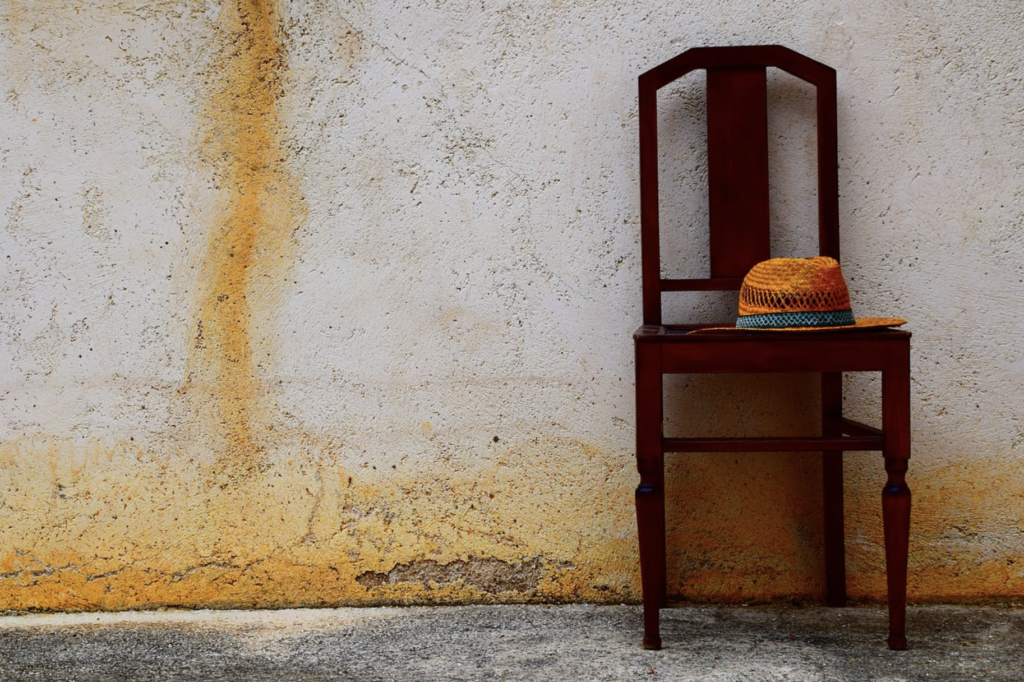
In my last post I wrote about the joy of wanting less. While I stand by the article, I also realize that it and similar ideas leave out something incredibly important in life: luck. And, when we talk about luck in today’s world, we should also think about privilege.
So today I wanted to explore some of this territory.
A Buddhist view of luck?
As a scholar of Buddhism, I find it helpful to start here. What did the Buddha have to say about luck? Well, as it turns out, he rejected the idea completely. In his time, there were some philosophers who thought basically everything in life was luck. For them, being ethical or unethical didn’t matter. What will come will come. Maybe it’ll be good. Maybe it’ll be bad.
The Buddha strongly rejected this because of the implications to morality. For him, every bit of seemingly “good luck” we experience is actually a result of past good deeds. It’s our karma ripening like the fruit of a tree we once planted. Bad luck is like this too. Even if we’ve been rotten our whole lives, if something good happens to us, the Buddha says we can attribute it to past good deeds—perhaps in this case in a past life.
That’s why the Buddha so strongly emphasized doing good deeds. This, he taught, was the foundation of his path. Even before meditation or any kind of philosophical ideas, developing good actions is needed.
What about Western Philosophers?
One of our age’s great philosophers is Thomas Nagel (b. 1937). Nagel argues that we must incorporate the idea of luck into our moral reasoning. In doing so, some people shouldn’t be praised as much as they are when they are simply acting on luck. Others, too, shouldn’t be so heavily blamed when their bad luck plays a major role in their unethical actions.
Missoula’s own Hank Green made a wonderful video laying out Western philosophical thought on Moral Luck:
https://www.youtube.com/watch?v=DpDSPVv8lUE&ab_channel=CrashCourse
For instance, we could look at some of my own life as I described it in my last post. There, I attributed some of my success to the philosophy of letting go and my willingness to live simply. That, I suggested, allowed me to leap at opportunities to study abroad and to go with the flow of great ideas as they came to me.
However, looking at the power of luck (and one might rightly add “privilege”), we could say I was able to do all of this because I came from a middle-class family. I knew that I could strike out into graduate school in the humanities and, if all of it failed, I could live for free with my parents while I tried to figure out next steps. In fact, I did live with them a couple times between jobs.
Gender and Race Considerations
I also had the luck of being a white male. Until fairly recently, this was a sort of invisible (to us white men!) kind of luck. Women knew about it. People of color knew about it. Hell, most white men probably knew about it but just refused to discuss it openly and fairly.
But today it must be recognized, even if only as a background factor. Every white male out there can attribute some unknowable percent of his success to the dumb luck of being born white and male in a world that privileges those qualities.
This is a tough pill to swallow for many white men. Especially if they haven’t been particularly successful. For them, hopefully empathy can develop for women and people of color (along with the LGBTIQ community and neurodivergent folks and any other “others” out there). With empathy we can see more of the obstacles put in front of people simply because they are not white. Or simply because they are women. In a world that often doesn’t reward empathy, this can be hard.
Economic Considerations
Specifically in the case of the ability to “want less,” our economic situation, often dictated by luck or privilege, might play a stronger role than we’d like to admit. From my own limited experience as a poor graduate student, I can say that sometimes hoarding odd items feels necessary when you don’t have much money. If you find a bargain, you buy up things to feel secure. You never know when you might need certain things and you know you might not have money to buy them when the need comes up.
When you have plenty of money it is easier to pass up such acquisition. You know that if you ever need an item, you can go buy it at whatever cost and can even pay extra for the fastest delivery. So, of course you can live a simpler, less cluttered lifestyle. Everything you need is just a purchase away and your bank account will know no difference.
You can quickly find great articles laying this out in detail. People claiming that minimalism, the ultimate “wanting less,” are often quite well off and cushioned with middle-class (or better) families to fall back on if anything were to go wrong.
Ethics and Good Luck

This doesn’t entirely eliminate the moral value of traits like simplicity. At whatever place we are in life, we can evaluate what we “want” vs “need” and find some value in letting go of certain wants. Some of those, we’ll find, aren’t our wants at all. Instead, they are the result of clever marketing and a society bent on constant consumption.
Nonetheless, the luck of being in circumstances in which we can live more simply also needs to be acknowledged. The result leaves us straddling two realities: one of seeking to do better and the reality of knowing our socio-economic surroundings. Both play a role.
Realizing this, we can be a bit kinder to ourselves if we start from a place with less privilege or less luck. And we can praise a little less those who have had everything handed to them when they somehow end up on top.
 Justin Whitaker, Ph.D., holds a doctorate in Buddhist ethics from the University of London. He has given lectures, and taught Buddhist studies and Philosophy at Oxford University, the University of Hong Kong, the University of Montana, and at Antioch University’s intensive study-abroad program in India. A certified meditation teacher, he is a regular contributor to Patheos.com, and Senior Correspondent for Buddhistdoor Global. He lives in Missoula with his family.
Justin Whitaker, Ph.D., holds a doctorate in Buddhist ethics from the University of London. He has given lectures, and taught Buddhist studies and Philosophy at Oxford University, the University of Hong Kong, the University of Montana, and at Antioch University’s intensive study-abroad program in India. A certified meditation teacher, he is a regular contributor to Patheos.com, and Senior Correspondent for Buddhistdoor Global. He lives in Missoula with his family.
